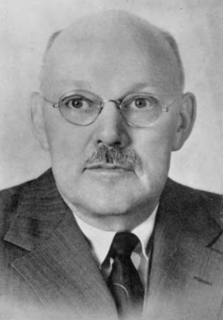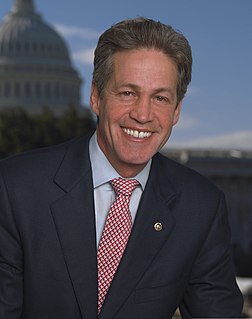A Quote by Paul Feyerabend
It is clear, then, that the idea of a fixed method, or of a fixed theory of rationality, rests on too naive a view of man and his social surroundings. To those who look at the rich material provided by history, and who are not intent on impoverishing it in order to please their lower instincts, their craving for intellectual security in the form of clarity, precision, "objectivity," "truth," it will become clear that there is only one principle that can be defended under all circumstances and in all stages of human development. It is the principle: anything goes.
Quote Topics
Anything
Anything Goes
Become
Circumstances
Clarity
Clear
Craving
Defended
Development
Fixed
Form
Goes
His
History
Human
Human Development
Idea
Instincts
Intellectual
Intent
Look
Lower
Man
Material
Method
Naive
Objectivity
Only
Order
Please
Precision
Principle
Provided
Rationality
Rests
Rich
Security
Social
Stages
Surroundings
Then
Theory
Those
Too
Truth
View
Will
Related Quotes
Anarchism is no patent solution for all human problems, no Utopia of a perfect social order, as it has often been called, since on principle it rejects all absolute schemes and concepts. It does not believe in any absolute truth, or in definite final goals for human development, but in an unlimited perfectibility of social arrangements and human conditions which are always straining after higher forms of expression, and to which for this reason one can assign no definite terminus nor set any fixed goal.
Widely dispersed knowledge concerning the important role of basic cooperative processes among living beings may lead to the acceptance of cooperation as a guiding principle both in social theory and as a basis for human behavior. Such a development when it occurs will alter the course of human history.
What will be required to increase the quality of life and health is a coming together of technology and values, based on a scientific guiding principle that people can agree on. Securing a healthy global future requires this guiding principle to preserve freedom of spirit yet be as provable as the laws of physics. A guiding principle that addresses the meaning of life and is compelling enough to generate social cohesion and behaviors that serve the greater whole. After thirty years of investigation and research, it has become clear to me that the answer lies within the human heart.
Looking to future generations, there is no cause to fear that the social instincts will grow weaker... the social instincts, - the prime principle of man's moral constitution - with the aid of active intellectual powers and the effects of habit, naturally lead to the golden rule, "As ye would that men should do to you; do ye to them likewise"; and this lies at the foundation of morality.
Fashion rests upon folly. Art rests upon law. Fashion is ephemeral. Art is eternal. Indeed what is a fashion really? A fashion is merely a form of ugliness so absolutely unbearable that we have to alter it every six months! It is quite clear that were it beautiful and rational we would not alter anything that combined those two rare qualities. And wherever dress has been so, it has remained unchanged in law and principle for many hundred years.
God's irony, that in order to fight and defeat the threat of terrorism, we shall have to be clear about the principle of justice that allows us to understand what is evil in terrorism. And that principle of justice is the claim of justice that is inherent in every innocent human life. But if that claim was there in the Twin Towers, if it was there on the airplanes that those terrorists attacked, you explain to me why it is not there in the womb!
The Principle of Tolerance, fixed once for all the realization that all knowledge is limited. It is an irony of history that at the very time when this was being worked out, there should rise, under Hitler in Germany and other tyrants elsewhere, a counter-conception: a principle of monstrous certainty. When the future looks back on the 1930's, it will think of them as a crucial confrontation of culture as I have been expounding it - the ascent of man against the throwback to the despots' belief that they have absolute certainty.
When a patient says he feels stuck and confused, and through good intentions he struggles to become loose and clear, he only remains chronically trapped in the mire of his own stubbornness. If instead he will go with where he is, only then is there hope. If he will let himself get deeply into the experience of being stuck, only then will he reclaim that part of himself that is holding him. Only if he will give up trying to control his thinking, and let himself sink into his confusion, only then will things become clear. (64)
We teachers can only help the work going on, as servants wait upon a master. We then become witnesses to the development of the human soul; the emergence of the New Man who will no longer be the victim of events but, thanks to his clarity of vision, will become able to direct and to mold the future of mankind.
You can’t run away. The past will be only too happy to chase you —- in absolute, complete, and total earnest. Do you know why? Because they’re lonely. The past and memories are very lonely things. I don’t believe in God. Because he doesn’t have a fixed form. The past certainly does exist, even in a world where the future doesn’t have a fixed form. Even if it’s being colored by misunderstandings and delusions, a person’s past can’t be anything but the truth as long as he believes in it. If that’s what you base your actions or your way of life on, isn’t that like being god?
The principle itself of dogmatic religion, dogmatic morality, dogmatic philosophy, is what requires to be rooted out; not any particular manifestation of that principle. The very corner-stone of an education intended to form great minds, must be the recognition of the principle, that the object is to call forth the greatest possible quantity of intellectual power, and to inspire the intensest love of truth.









































